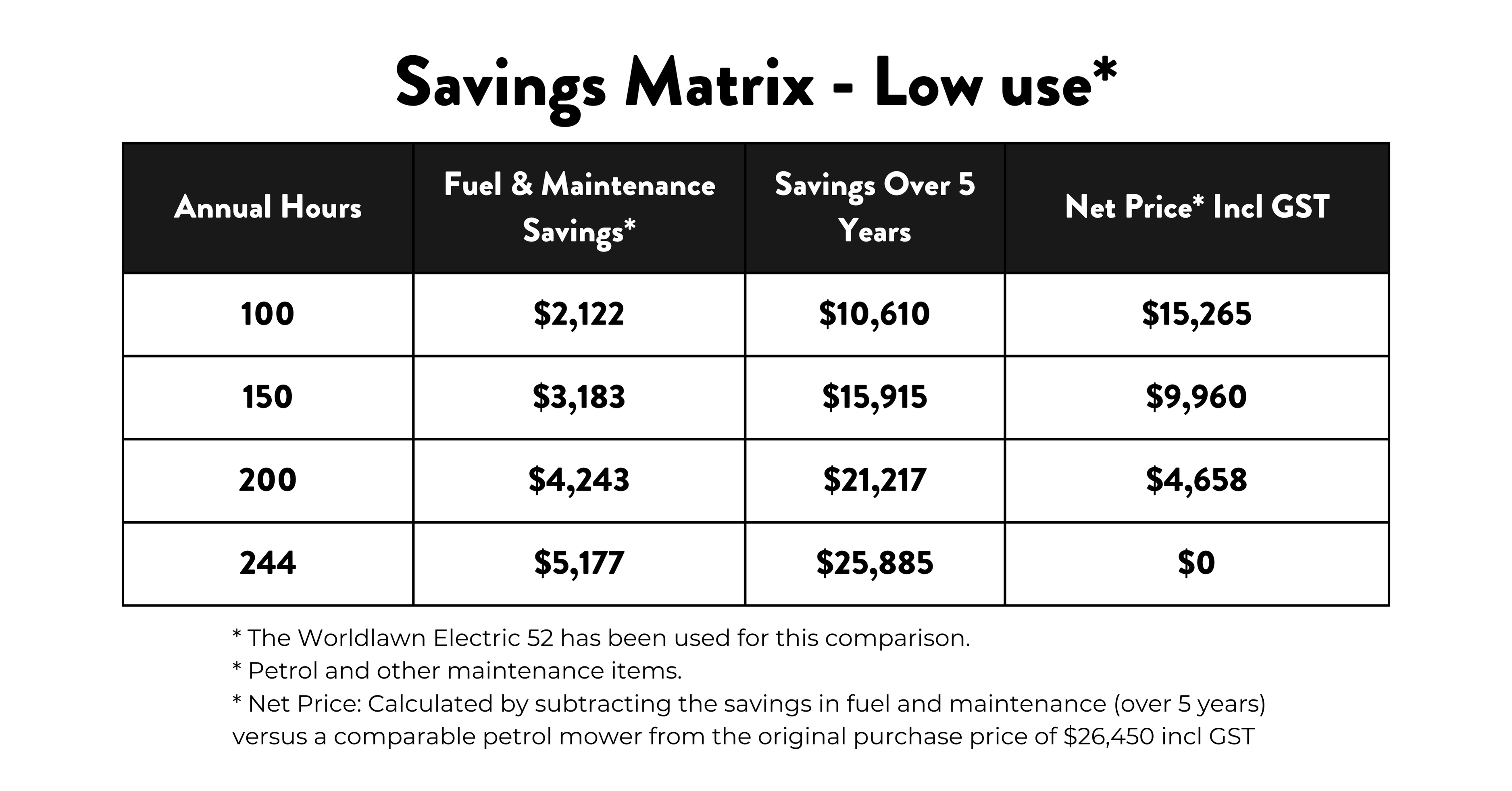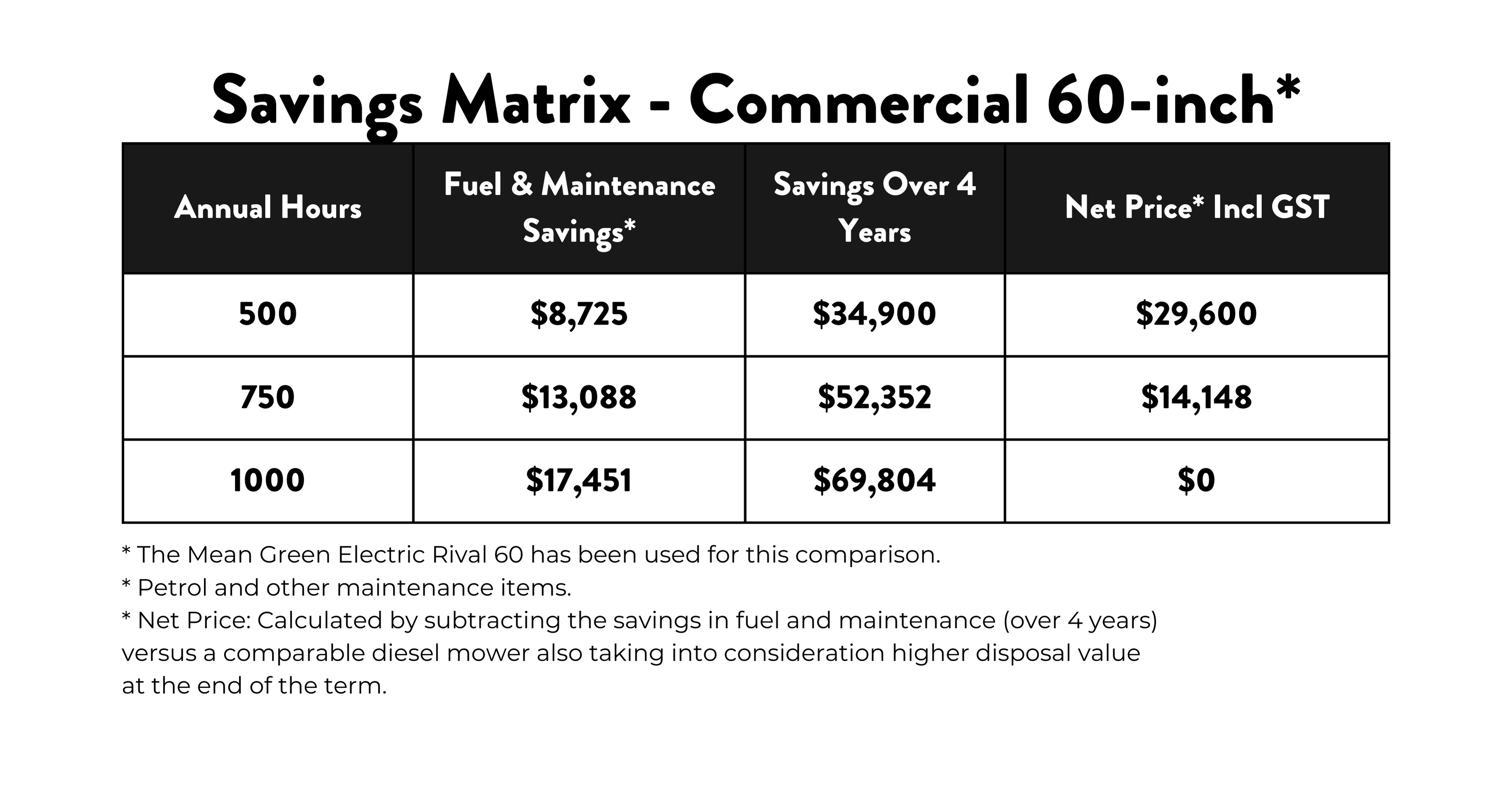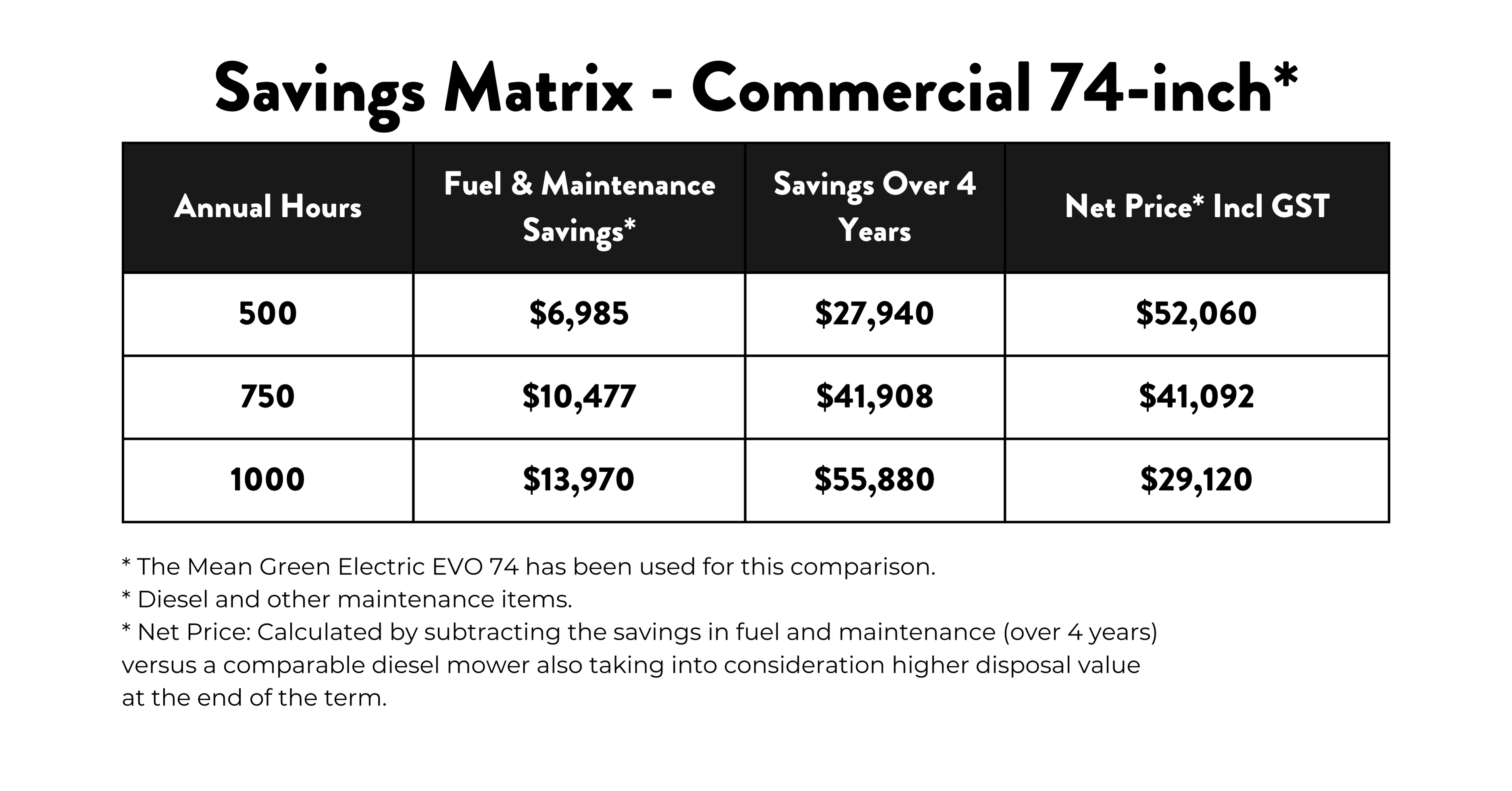Savings Guide

Maximize Your Investment Over Time
When considering the purchase of an electric lawn mower, the initial cost may appear higher than traditional petrol-powered mowers or diesel mowers. However, it's crucial to focus on the long-term savings and significant benefits that electric mowers provide. These include lower fuel costs, reduced maintenance expenses, and increased resale value for commercial users.
Over the mower's lifetime, electric mowers offer substantial cost-efficiency and environmental benefits. This guide covers the key factors you need to assess when calculating the financial advantages of owning an electric mower, helping you make an informed decision based on your budget and mowing requirements.
Key Points to Consider for Electric Mower Savings:
-
1. Initial Investment vs. Long-Term Savings
- Upfront Cost: Electric mowers typically have a higher purchase price compared to petrol or diesel mowers.
- Long-Term Focus: The initial cost is offset by significant savings in fuel and maintenance over the machine's life, making the higher upfront cost irrelevant in the long run.
-
2. Whole-of-Life Cost
- Total Cost Calculation: Consider the total cost of ownership, including savings in fuel and maintenance, plus the potential second-hand value for commercial mowers.
- Net Cost: This gives you a more accurate picture of the financial benefits of owning an electric mower over time.
-
3. Fuel and Maintenance Savings
- Electricity vs. Petrol/Diesel: Electric mowers are cheaper to run due to lower fuel (electricity) and maintenance costs compared to conventional mowers that require petrol, diesel, belts, filters, etc.
- Comparable Maintenance: Blade sharpening costs are the same for both electric and petrol mowers, so this factor is excluded from savings calculations.
-
4. Impact of Fluctuating Fuel Prices
- Uncertain Fuel Costs: Current savings are based on today's petrol and diesel prices, but as these fluctuate, the financial benefits of electric mowers could increase further over time.
- Future-Proofing: Electric mowers protect you from the unpredictability of rising fuel costs.
-
5. Budget Considerations
- What’s Your Budget?: It’s important to assess how much you’re willing to invest upfront for a mower, and how much weight you give to long-term savings and environmental benefits.
- Example: For example, with a $15,000 budget, you may find that the savings in fuel and maintenance can bring an electric mower's net cost in line with your budget.
-
6. Financing Options
- Upfront vs. Financing: If the electric mower exceeds your budget, consider financing options. For instance, borrowing additional funds can be offset by monthly savings in fuel and maintenance.
- Cost Breakdown: In some cases, the net monthly cost of owning an electric mower might come down to a small amount like $12.50 per week when factoring in savings.
-
7. The More You Mow, The More You Save
- Usage-Based Savings: The more hours you mow each year, the greater your overall savings in fuel and maintenance. High-usage commercial operators will see the most significant financial benefits.
- Savings Matrix: As you increase mowing hours, savings increase dramatically. For example, mowing 200 hours per year can result in over $4,000 in fuel and maintenance savings.
-
8. Second-Hand Value for Commercial Mowers
- Higher Disposal Value: Commercial mowers like the Mean Green Electric models retain higher disposal values, meaning you'll likely recoup more when selling or trading in your electric mower after several years of use.
- Commercial Savings: For high-usage mowers, savings can be substantial over a 4-year period, often eliminating the net cost of ownership.
-
9. Comparing Different Models
- Savings Matrix for Different Models: Whether you choose a Worldlawn Electric 52-inch or a Mean Green Electric Rival, each model offers a different level of savings based on hours used annually.
- Tailored to Your Needs: Review the savings matrix to find the best electric mower for your specific needs, whether for residential or commercial use.



Our Brands
-

Mean Green Electric Mowers
When an idea makes good common sense and is the right thing...
-

WorldLawn Electric Mowers
Worldlawn is always working to provide the best products for its customers...



